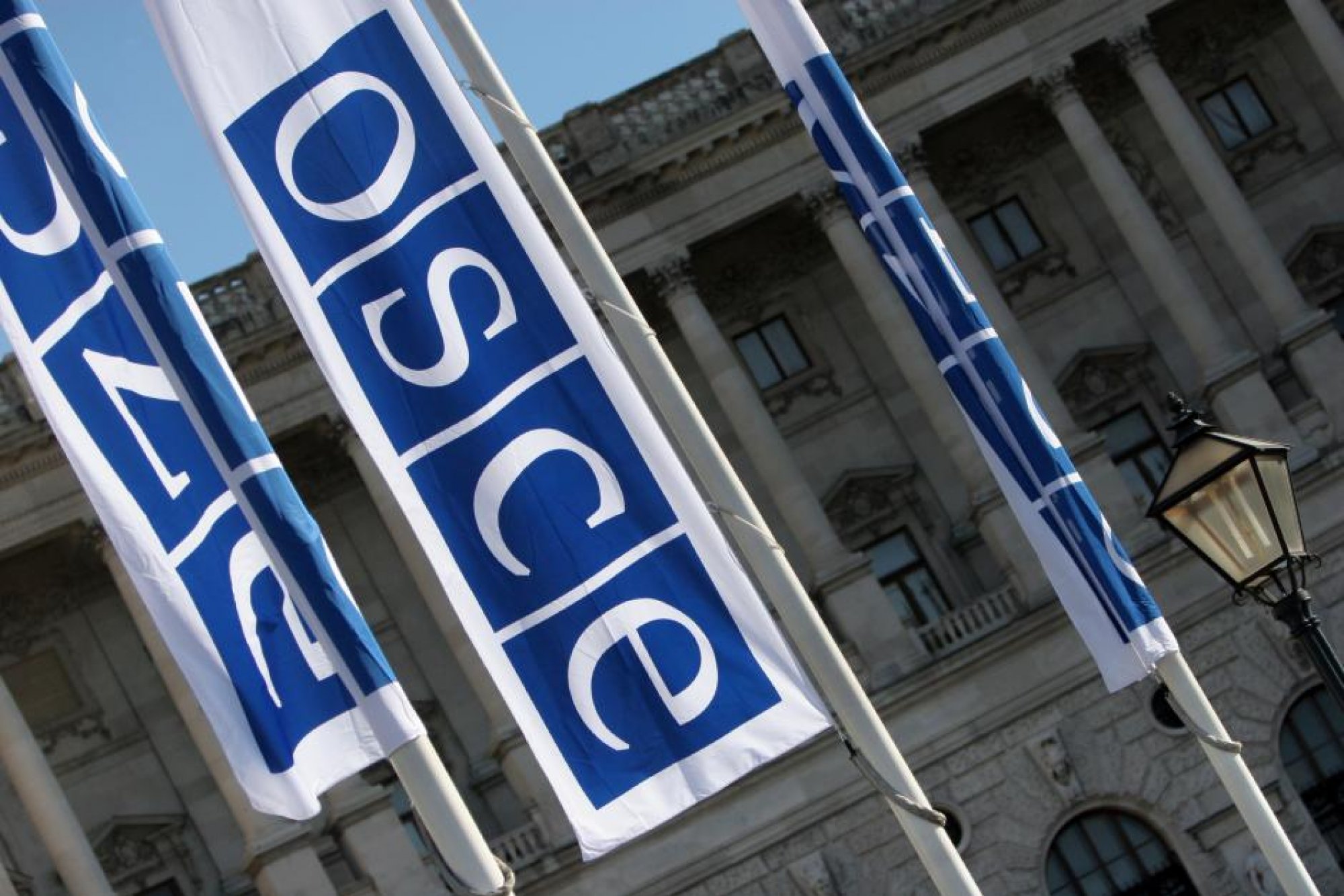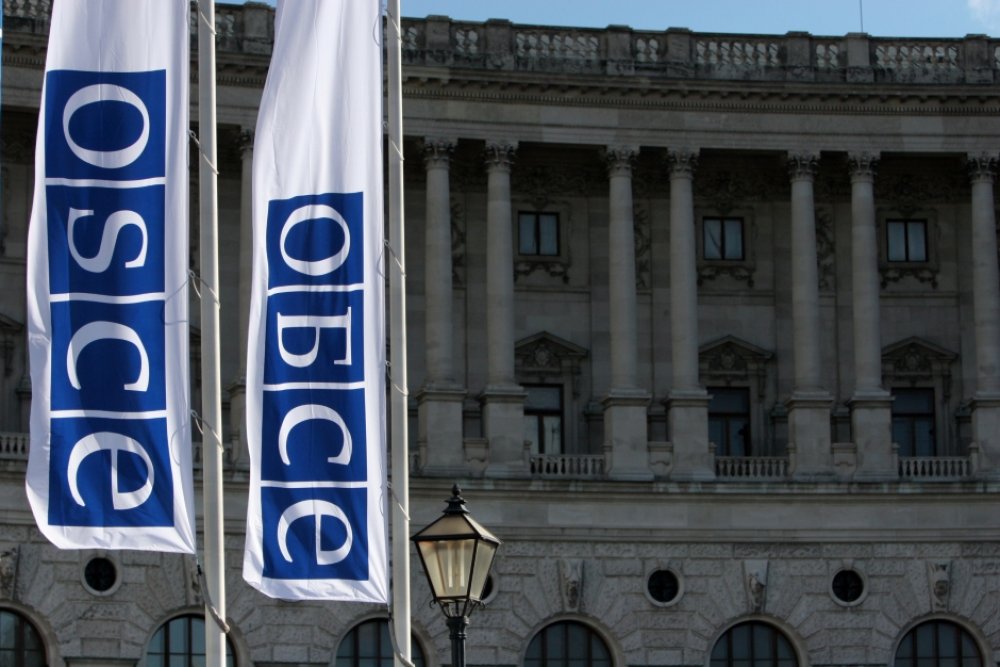OSCE/Mikhail Evstafiev

Is this the death of the OSCE Decalogue?
Almost half a century ago, in 1975, all European heads of state and government (except Albania) signed the Helsinki Final Act with its fundamental Decalogue of Principles governing relations among the OSCE states. This document became the cornerstone of the European security architecture, outlining the way all OSCE states would conduct their relations among each other. Although this document has been challenged several times, never before has the Decalogue been violated in such a blatant and shameful way as this week when the Russian Federation launched an all-out military attack on the neighbouring state of Ukraine. Since this ‘military operation’ undermined the most fundamental principles of relations among civilized countries one may argue that this implies an almost fatal wound for the whole Decalogue and, therefore, a threatening collapse of the most fundamental security structure in post-war Europe.
At the same time it also means that an organization like the OSCE has failed in all respects to ensure the fulfillment of its key function, i.e. ensuring a stable environment in the OSCE area through its cooperative and comprehensive security approach. In particular in the post-Cold War period the OSCE became an impressive ‘community of values’ and ‘community of responsibility’. At the Astana Summit, just 11 years ago, there was even talk of a joint vision of a Euro-Atlantic and Eurasian security. By adhering to a constantly developing number of basic norms and values in the OSCE region, the East-West divide turned into a region with largely common norms and values, not only in the area of peace and security, but also in the areas of the human and the economic and environmental dimensions.
What is more, OSCE participating states did not only aim at the development of a highly sophisticated system of norms and rules, but also at a system that aimed at providing each other support, whenever countries were considered to be in need of help. This ‘joint responsibility’ for the fulfilment of the basic norms and standards, based on the idea of “indivisible security” has been fatally affected in the case of the Russian military attack against Ukraine since a key OSCE state refused to comply with the most fundamental rules which it had helped create itself.
The ‘community of responsibility’, however, is also largely ignored by the other OSCE states, which of course are competing with each other in condemning the Russian actions in words, but at the same time refusing to provide meaningful help to the Ukrainian government and people by only imposing non-military sanctions. Furthermore, there were few serious attempts within the OSCE during the past few months and years to move beyond stubborn public diplomacy to real negotiations on resolving the crisis in and around Ukraine. Also this behavior has made the community of responsibility as a core element of the OSCE philosophy of promoting peace and security in the Eurasian area void of a substantial meaning. If a partner such as Ukraine which is overrun by a much more powerful army by another OSCE state and then is largely left on its own, the philosophy of a ‘family of nations’ has been totally undermined.
The Russian occupation of the Crimea in 2014 was already a clear sign that the Russian Federation was acting in violation of the most fundamental principles of international law, but at least it still made an effort to show that it felt obliged to take these principles seriously, for instance through the organization of a (fraudulent) referendum about Crimea joining the Russian territory as an act of ‘self-determination’. In the case of the war against Ukraine the Russian authorities are going further by not even making a serious effort anymore to reconcile their military acts with the ‘law book’.
Instead it is playing now by the old-fashioned, 19th-century book of power politics and geographical expansionism to ensure its ‘national security’, no longer hindered by legal niceties such as principles of non-aggression, inviolability of borders or non-interference in internal affairs – principles that were already enshrined in the UN Charter to save future generations from the scourge of war.
The result is that the European continent (and the world) has been thrown back into a political nightmare where the carefully developed checks and balances in the volatile international security system have been discarded and where the world has been thrown back in a security jungle where power politics has taken over from basic principles and norms. The damage caused by this unilateral Russian action goes way beyond the bilateral Russian-Ukrainian relation and is dangerously undermining the whole system which has given Europe a longer period of peace than ever before.
Although the OSCE has achieved a lot over the past decades, in particular also in the most challenging environments, the open Russian aggression against a neighbouring country is the most serious crisis which the OSCE has faced in its existence. As a matter of fact, the basis on which the organization has been functioning has been largely taken away.
Will the OSCE survive? Does it need to be reinvented – what some have described as Helsinki 2.0? The Russian attack on Ukraine has killed the hopes for a more peaceful world where conflicts could be effectively addressed through cooperative security. It may be hoped that the Russian people will not allow their dictatorial regime to get away with these crimes. Only when this regime would collapse is there hope for a revitalization of the post-war order in Europe as it has been developed so far. Otherwise we are thrown back in the ‘Middle Ages’ which is a frightening idea in a world with an abundance of nuclear arms.
Arie Bloed is the former Editor-in-Chief of the Security and Human Rights Journal.



Comments
* Your email address will not be published